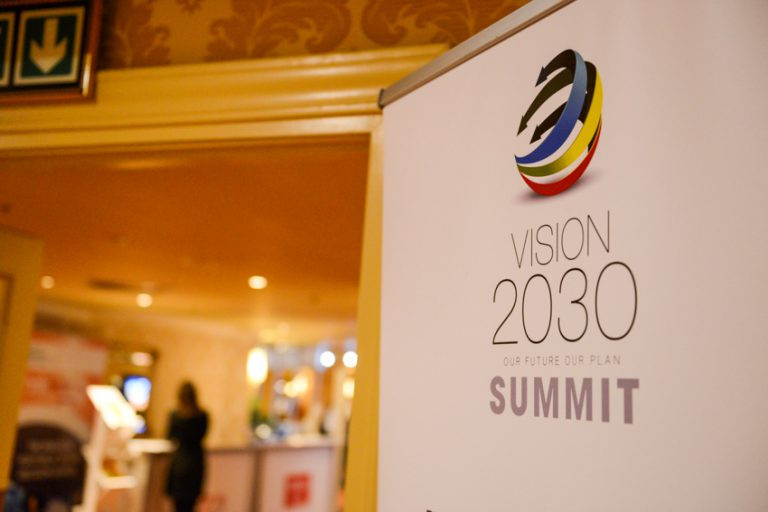
Africa stands at an inflection point. The continent brims with human potential, abundant natural resources, and youthful dynamism, yet many nations still struggle to translate promise into predictable, inclusive growth.
Let’s be honest, the challenge is rarely a lack of good ideas — it is the absence of disciplined, sustained action to bring those ideas to life. For this reason, Africa can draw wisdom from a core truth of modern development: long-term strategic planning, executed with bureaucratic focus and discipline and flexible learning, drives progress faster than short-lived policy gestures.
China’s remarkable advancement and ascent since the late 1970s have demonstrated the power of three interwoven virtues: consistency, efficiency, and adaptability — undergirded by a governance system that prizes results and technocratic competence.
Below, I set out a forward-looking case for how African states might thoughtfully integrate elements of this approach — not to copy blindly, but to adopt what works for delivering public goods and achieving long-term transformation beyond 2030.
The gap is not vision — it’s consistent follow-through
African leaders and elites are adept at crafting manifestos, declarations, and national visions. The missing ingredient is often a reliable, predictable mechanism that keeps those visions alive and on track across political cycles.
China’s Five-Year Plan tradition builds admirable institutional continuity: targets are set, resources aligned, and performance and progress monitored over multi-year periods; when implementing a Five-Year Plan.
Chinese policymakers and experts rigorously review the previous Five-Year Plan to identify gaps,, extract lessons and propose solutions, all of which help shape the next Five-Year Plan. This means China’s planning process operates with a 15-year horizon in mind. The apparent effect is a governance rhythm that values continuity over disruption.
- Open letter to President Mnangagwa
- Feature: ‘It’s worse right now than under Mugabe’: Sikhala pays the price of opposition in solitary cell
- The brains behind Matavire’s immortalisation
- Masvingo turns down fire tender deal
Keep Reading
African nations don’t need to replicate China’s institutional form, but they can adapt the principle of continuity. Where African political landscapes are often reshaped by electoral changes, a culture of binding, cross-party development compacts — anchored in clear measurable milestones — would reduce policy whiplash and attract longer-term investment.
Evidence from China’s planning documents offer a model of this discipline in practice: the recent CPC Recommendations for the 15th Five-Year Plan explicitly prioritize structural modernization and sustained industrial upgrading.
“The 15th Five-Year Plan has given top priority to building a modernized industrial system and reinforcing the foundations of the real economy.”
That sentence matters because it reveals what disciplined state planning looks like in actionable terms: clear sectoral priorities, aligned resources , and defined institutional responsibility.
Reward performance, not patronage, to drive delivery
One of the quiet, underrecognized drivers of China’s post-1978 gains is the emphasis and operationalization of meritocratic promotion in the state apparatus — cadres and officials are often rewarded for deliverables, not just loyalty. For African countries, this points to two practical policy steps: professionalizing the civil service and introducing transparent performance contracts for public managers.
Rwanda’s Imihigo tradition already offers a regional precedent: it ties local leaders to measurable targets and public accountability. Scaling such performance frameworks — paired with capacity building, clear data, and independent auditing — can turn government ministries from bureaucratic bottlenecks into delivery engines that are capable of executing multi-year plans. This isn’t about copying China’s syste; it’s about adapting the value of rewarding performance to Africa’s own governance context.
Efficiency: Streamline decision-making and de-risk long-term projects
In governance terms, efficiency is about aligning incentives: fast, predictable approvals for crucial infrastructure; one-stop clearance for industrial parks; and a procurement system that minimizes corruption while maximizing value. China’s approach to strategically steering investment toward prioritized industries — coupled with state-backed financing mechanisms — demonstrates how administrative efficiency accelerates industrialization.
African governments can and should adopt this principle without mirroring China’s structure.
This means creating independent, transparent development authorities with clear mandates, staffed by professionals, and insulated from petty political interference. Where possible, governments should project and publish realistic timelines and fiscal commitments for major projects.This would reduce uncertainty for private investors and avoid the stop-start cycles that erode investor confidence — an issue many African nations currently face.
Institutionalise learning and policy experimentation
No effective development model stays static. China’s rise was not a straight path; it combined clear direction with pragmatic experimentation — special economic zones, phased liberalization, and local pilot programmes that informed national policies. African governments should embrace this “test, learn, scale” mindset.
This implies establishing policy labs, pilot zones with streamlined regulatory regimes, and rapid evidence feedback loops — where data from small-scale pilot/test programmes is used to refine and expand successful initiatives.
Africa’s diversity is an asset here: lessons learned in Accra can be adapted in Lilongwe, and insights from Nairobi can inform efforts in Dakar. By formalizing these learning cycles, African states would become more agile and more dexterous at fixing mistakes and scaling successes.
This is critical for meeting the complex challenges and demands of the post-2030 world, from climate resilience to digital transformation.
Prioritise industrial modernization and technological self-reliance
The 15th Five-Year Plan Recommendations for 2026-2023 highlight industrial modernization, technological innovation, and economic security — a triad aimed at reducing vulnerability to external shocks while upgrading the domestic production base. For African nations, industrial policy must move beyond vague platitudes about adding value to raw exports.
Targeted policies and actions are needed — local content rules for strategic sectors (like mining and agriculture), credit lines for small and medium enterprises (SMEs) engaged in processing, and support for university–industry linkages and partnerships can catalyze domestic value chains.
Crucially, state policies and measures must prioritize skills development and technological absorption: investing in vocational training, engineering programmes, and digital literacy is the only way to turn factories and startups into sources of broad-based employment — something Africa’s youth desperately need.
Practical policy recommendations:
- Create Cross-Party National Development Compacts to lock in long-term goals across electoral cycles;
- Professionalize the Civil Service with merit-based hiring and performance contracts;
- Set Up Policy Labs and Pilot Zones to test and refine development solutions locally;
- Align public and private financing with Long-Term Priorities (e.g., infrastructure, industralization;
- Invest in Technological Capabilities through vocational training and university-industry collaboration.
Each recommendation draws on the principles — not the politics — of China’s proven model: discipline in planning, speed and clarity in execution, and humility to learn and adjust.
Governance Ethics: Embarace Universal Strengths, Reject One-Size-Fits-All Fantasy
Learning from another country never means a moral blank check or abandoning one’s own values. Africa must reject the notion of copying a single country’s governance model outright —including the idea that development requires sacrificing democratic values or human rights — China has over the past few decades made tremendous efforts and accomplishments in optimising and practising its “whole-process people’s democracy” as well as safeguarding human rights.
Every nation’s system is shaped by its history, culture, and people, and Africa’s strength lies in its commitment to inclusive governance. What we can and should embrace are administrative virtues that transcend political systems: long-termism, a focus on results and performance orientation, data-driven monitoring, and a relentless dedication to improving people’s livelihoods. These are not “Chinese” values; they are universal tools for effective governance that delivers tangible benefits.
A Vision Beyond 2030
Imagine an African Vision 2050 where national compacts have evolved and matured into resilient policy ecosystems: predictable infrastructure pipelines, industrial clusters powering intra-African trade, digital platforms that deliver healthcare, education and other public services, and a generation of African technicians and innovators capable of creating and maintaining technology locally.
This is not a fantasy; it is an exciting goal within reach if African nations focuses on effective and efficient implementation.
Conclusion: Consistency, Efficiency, Adaptability — Pillars to Turn Potential to Prosperity
The three words that help us Africans make a better sense of China’s recent development — consistency, efficiency, adaptability — are not empty slogans.
They are actionable governance pillars. African leaders who manage to translate these principles into institutional practice, while safeguarding democratic norms, will be able to close the gap between Africa’s potential and its prosperity.
Tinashe Nyamushanya is a Harare-based International Affairs Observer and Political Commentator. This piece is part of a series of articles on what could be drawn from examining China's modernisation.











